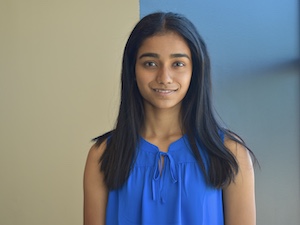2022 Week 5: Environment, Sustainability & Community Health
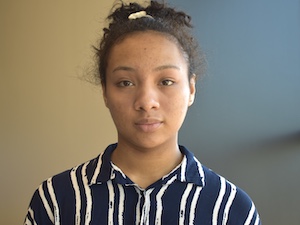 Angelica Brooks | Farm Alliance of Baltimore
Angelica Brooks | Farm Alliance of Baltimore
Throughout my internship thus far, I’m grateful to have met so many different kinds of people who all have unique skillsets. In a short amount of time, I was doing a lot of hands on farming work that required physical labor, or scientific knowledge about agricultural concepts. My passions originally fell more with advocacy, social justice issues, and intersectional environmentalism, which are all present themes at my placement, but it is not directly what my placement’s mission is for. As a result of this circumstance, I learned a lot of valuable lessons that I will implement in my future career opportunities and life goals in general.
1. It’s okay to be the least experienced person in the room. In fact, you probably want it to be this way.
I learned this fact pretty much on the first day of the job, when I realized that everyone had years of farming experience. I had a few self doubts, wondering if I just looked silly as an inexperienced intern. However, this is truly the best way (in my opinion) to learn from a new experience. This means that every single person in that room can teach you something, which can be very valuable. We shouldn’t be ashamed of learning new things, because one day we will be on the other side and will have the opportunities in our careers to help others.
2. Don’t shy away from a task or experience because it doesn’t directly relate to your field.
I tried to immerse myself into all of my farming activities with an open mind, even if it was not what I initially envisioned myself doing. Agriculture and farming are extremely important in the environmental fields; there are intersections with food systems, land equity, sustainable food choices, and more. I only began to learn of these intersections as I spent time listening to urban farmers about their challenges with growing fresh food in Baltimore city.
3. Don’t be afraid to ask for help, ask for connections, or ask for more resources.
I learned that I am privileged to have access to people who are very experienced in their respective nonprofit fields. I need to take advantage of these privileges by asking as many questions as possible, maintaining meaningful connections with people that I may encounter later in my career, and finding as many resources as I can that can further my learning and skill building.
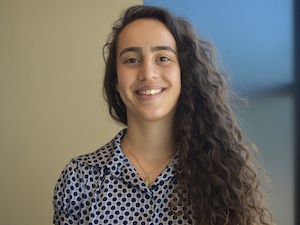 Siena DeFazio | Joy Wellness
Siena DeFazio | Joy Wellness
This past summer I have learned deeply about how to shift the perspective people look at their health with. We had one caller this week asking about exercise classes. She heard from her provider that we could prove that for her. When I told her the only exercise-ish class that was available was chair yoga she seemed off put. I don’t think she had heard of it before or like many others thought of it like something they do at assisted living homes similar to water aerobics. I’ve done our chair yoga class before and I can say it is not easy. The chair helps you set the difficulty but no matter what you will have to push yourself past placation. When she did come in she was the first person for class. Which led to some slight awkwardness but also gave her the chance to get to know the instructor. Then another new person came in and another! It was odd. The class went from typically only having 2 people attend to a full house! They were all also mostly independent meaning they did not come with a friend. I found out that it was because of my cold calls that they knew chair yoga was happening again. It pleased me to know that I could be a part of this reinvigoration.
To add on to that, the woman who originally called me about it ended up greatly enjoying it and says she will be back again next week. I think one of the biggest take aways I’m getting from this internship is that wellness comes with play. Happiness besides being good for health is so integral to developing a healthy relationship with wellness and community routines.
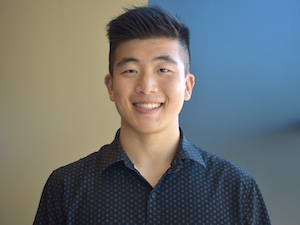 Jeremy Gu | Baltimore SquashWise
Jeremy Gu | Baltimore SquashWise
This week started our camp. It’s the first time we had middleschoolers come and actually experience Squashwise: some for the first time, others for a second or third time. It was really fun and interesting to interact with the native Baltimore community and see what drove them towards Squashwise and playing squash. Kids from all different backgrounds came to play, some were footballers, others were already well versed in squash, and a large set were also completely new to the game. Our jobs as counselors was to create an environment to allow the kids to best explore in and create authentic relationships with other students.
I enjoy reflecting on how my experiences at Squashwise shifted as we got closer and closer to the student programming and even now, with the students coming in. At first, I worked on some more fringe assignments like working on aiding the in school period as well as cleaning up Squashwise’s overall curriculum and calendar. Then, I started to gear my work toward the Summer camp – still largely assignments that could be done with just a computer alone. And that started to shift to more human collaboration and setting up the place to feel more like a camp. Finally, when camp hit, we completely stemmed away from virtual work to actually being able to interact and do all the work through the relationships we had with students. I think this shows how listening and serving a community is different from helping a community. Serving a community has all to do with initially listening and learning about the community rather than hands on work. The actual hands on work comes much later, after we learn the expectations and rules that the community arounds us operates by. My time at Squashwise has really represented this journey on the difference between serving and helping.
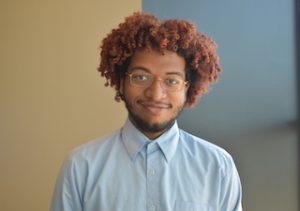 Brahein Richardson | Black Church Food Security Network
Brahein Richardson | Black Church Food Security Network
Something that has been stressed repeatedly throughout my internship is being proactive and familiarizing myself with organizations and people who I’m meeting with before our actual meeting. I usually attend at least one or two meetings with my site supervisor each week, and before meetings she always tells me to look up the organization, the people a part of the organization, and the specific people we will be meeting with. Dr. Brown himself always expresses how important it is to know who you’re meeting with before you walk into the room. I am very new to this approach but I definitely believe it is something that adds a lot of value and insight into every meeting, and I will absolutely be taking this with me through the numerous meetings I will probably be attending in my lifetime. In a similar direction, through all of the meetings I have been a part of. I have learned that it can be important to come to the meeting with specific goals or specific questions and directives to drive the meeting. You need to know what you want to grasp and get from the meeting beforehand. On another note, I am really grateful for the Black Church Food Security Network, my site supervisor and many others a part of the organization have truly welcomed me and accepted me with open arms, they have made me feel at home and made me feel important as a contributor to the work they are actively accomplishing. In the first few weeks I felt like an outsider looking in, but so many people have made sure I was recognized as a part of the wheel that keeps turning and progressing and advancing towards our goals. As the days go by I am looking forward to learning from everyone involved.
During the first week of my internship, my supervisor and I had one of our many meetings to discuss content for the curriculum I am working on. He wanted to practice going through a listening activity he intended to run with the YouthWorkers during the program. The whole point of the activity was to learn how to be a good active listener. At first, I didn’t think much of it; I had always considered myself to be a pretty good listener. He asked me to share a personal story during which he, the listener, would commit the 5 listening pitfalls we had outlined. I decided to talk about an equine therapy farm where I volunteer back at home in New Jersey. I talked about how I had grown very close with the horses there and with the owner of the nonprofit, and how it was hard to watch and hear her talk about the domino effect of financial struggles that they had been forced to endure for the last 2 years due to the pandemic. I was a little emotional when I was sharing this story; I was voicing my concerns for this organization that was near and dear to my heart as well as my own feelings of helplessness. I have been yearning to help them in a more substantial way beyond just volunteering at the barn but I don’t know how. While I was sharing, my supervisor interrupted me (purposefully) several times: to state an unhelpful silver lining, to share his feelings and somehow make the story about himself, to give me excessive unwanted sympathy, by being internally distracted and thinking about something else, and scrolling through his phone and very obviously not listening to what I was saying. Each time he demonstrated one of these pitfalls, I was taken aback and even a little frustrated, even though I knew he was just pretending for the sake of the activity, This exercise got me thinking about my own listening skills and reflecting on situations in the past where I, as the listener, unknowingly committed some variations of these pitfalls, even if to a much lesser degree. It really made me realize that I may not be as good of a listener as I originally thought and that I definitely have room to improve. Even though we did this activity several weeks ago, I still find myself thinking about it whenever I am on the listening end of a personal story or experience that someone is sharing with me. I have gotten more conscious about using my body language, not my words, to demonstrate that I am fully listening (something else that my supervisor and I discussed). I have also gotten better at catching myself when my thoughts start to wander, and I realize I am not fully listening to the words of the person speaking. All of these things, as well as other listening practices that my supervisor and I talked about, are still a work in progress for me. I want to continue becoming a better listener because I know that it is a vital part of communication and communication, of course, is the basis of all strong relationships. Especially since I intend to become a physician someday, I want to continue honing my listening skills so that my future patients feel truly heard and understood, and comfortable talking to me, knowing that I can always be trusted to listen to what they have to say.
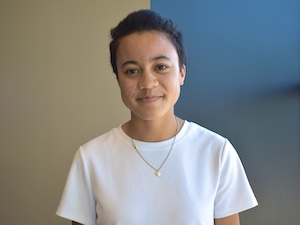 Marisa Thomas | Whitelock Community Farm
Marisa Thomas | Whitelock Community Farm
People skills is a huge thing I’ve learned this summer that I plan on taking with me for both my career and life in general. Having good communication skills is so important for getting work done. I’ve noticed that I struggle sometimes with being fast or clear with communication, so I’ve gotten better at responding in a timely manner and with the appropriate amount of detail. Sometimes I take the details too far, and I’ve learned how to find a sweet spot with sharing and asking for the most essential information. For example, when I don’t know what I’m supposed to do next on the farm, I’ve gotten better at asking about the next few tasks and details about preferences to make the work go faster. It’s definitely more efficient than struggling through or working hesitantly until I finally decide to ask a question.
I’ve also gotten better at talking to strangers and have been working on being more open and approachable. Typically, when I enter new settings I am more quiet and observant and wait for other people to talk to me. There is obviously nothing wrong with being reserved, but I am glad I’m gaining more confidence in talking to people in different social settings. I think that will be very valuable in the workforce when I’m entering new spaces. I can of course hold on to my listening skills, but being able to speak out, ask questions, and otherwise contribute has always been a goal of mine. In my personal life, the people skills I’ve gained from Whitelock will help me make new connections when I enter unfamiliar spaces. I’ve developed those skills simply by saying hello and having conversations with more people in the neighborhood this summer.
Besides people skills, I think I’ve also gotten better at farming! My farming and gardening skills before this internship were at a beginner level. I knew how to collect sticks, a little about how to water, and that weeds need to be pulled by the root. Now I know how to tell the difference between most weeds and crops. I also have learned better techniques for watering, and I’ve seen how much easier things can be with irrigation. I also learned how to plant seedlings, how to pick the best crops to harvest, and how to use a stirrup hoe. I am still unsure about whether or not my future career will go into farming specifically, but I know that I want to have a garden when I get older. If I live in a city, I’d like my garden work to be a part of community gardens. In either case, my knowledge about growing food will definitely be carried into my future!

